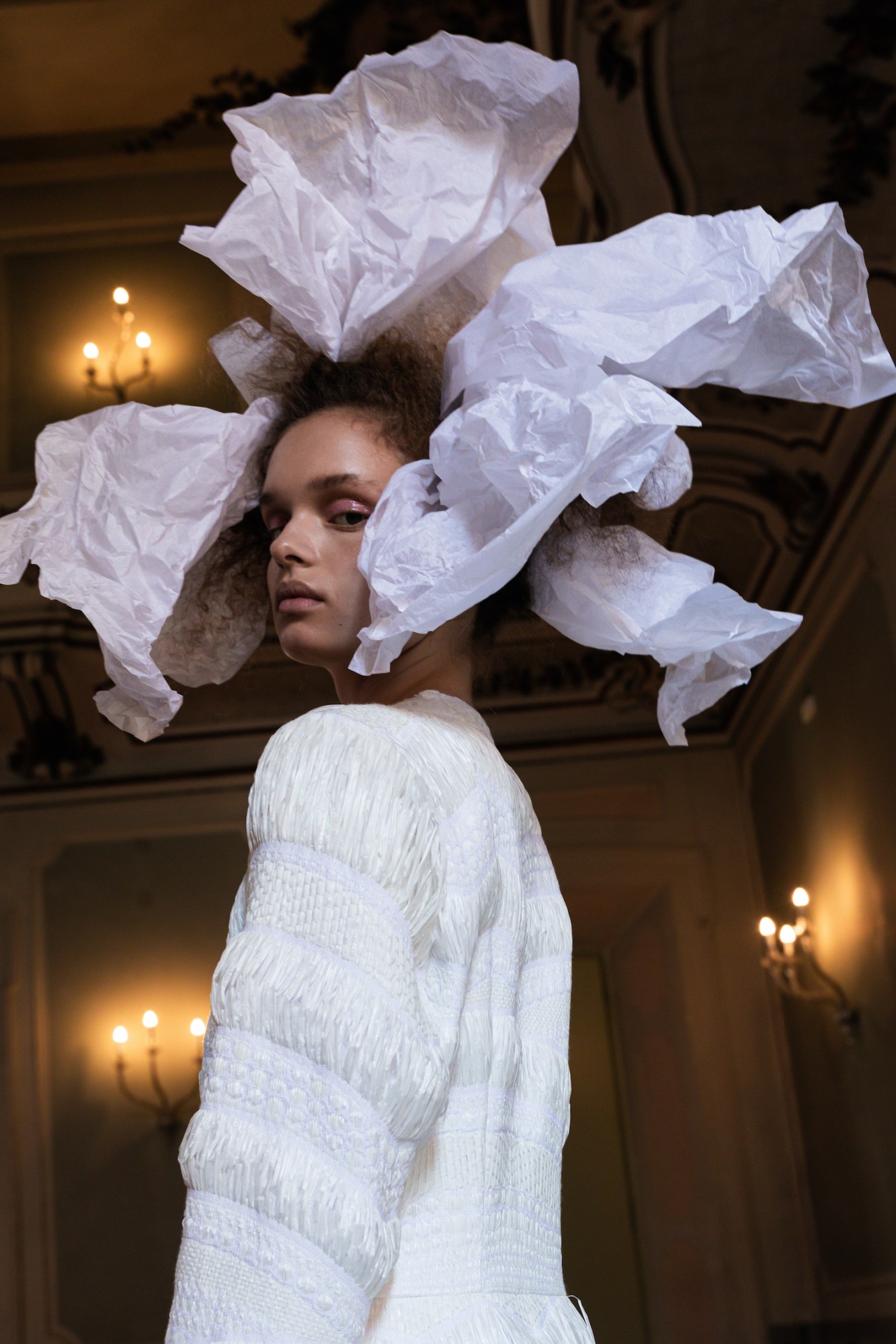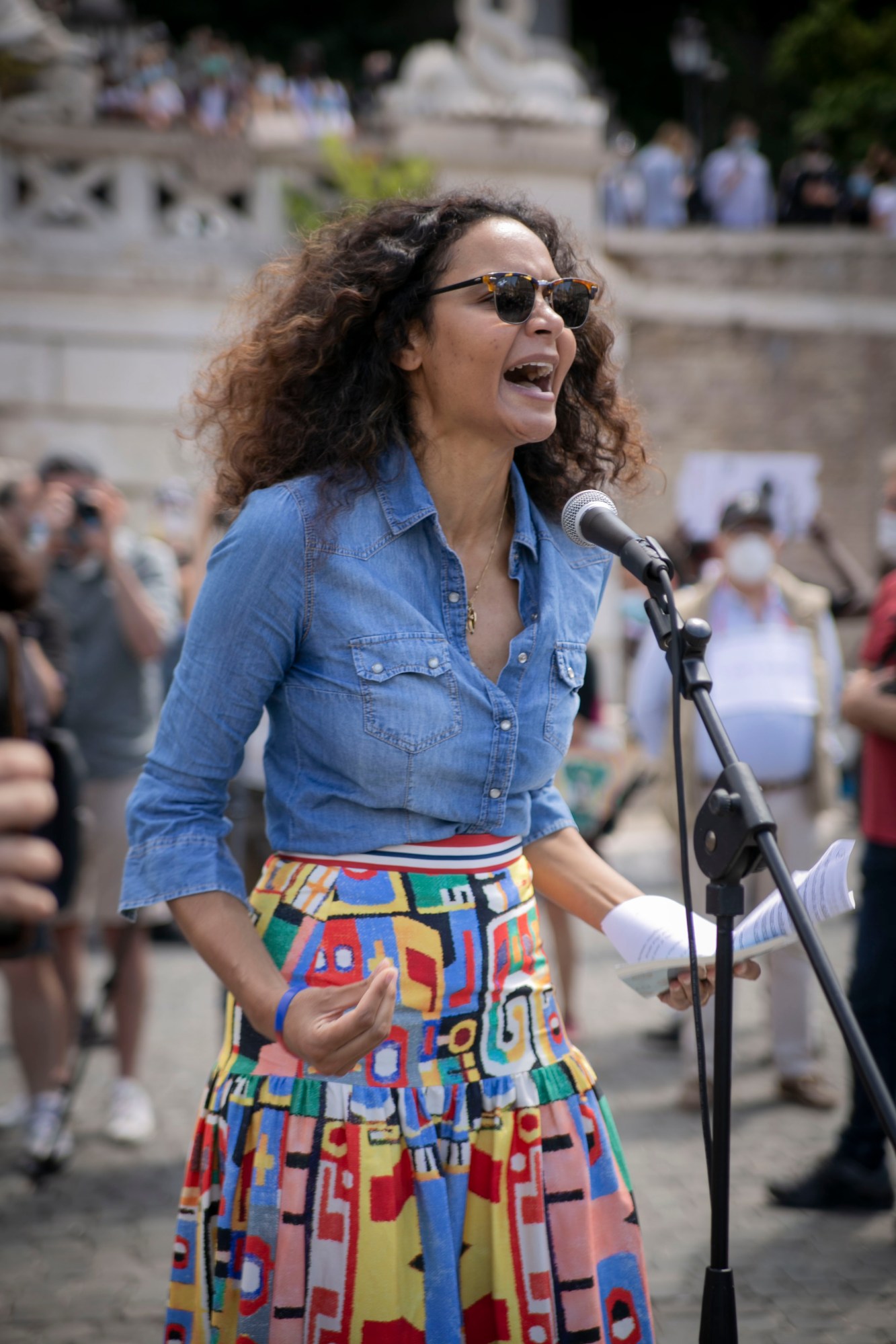There is no denying that Italian fashion is fabulous. From Pucci to Valentino, Fendi to Bottega Veneta, the boot-shaped country has acquired a powerful legacy in luxury craftsmanship. Today, it is home to 82,000 active fashion businesses with more than half a million employees. Last year, the Italian fashion industry grew by 3.5 percent, making it the second-largest manufacturing sector in the nation. For fashion, made-in-Italy is synonymous with tradition and quality. Yet despite all the sartorial splendour, Italian fashion also has a dark side. Often, when the media cites examples of fashion houses co-opting centuries-old racist imagery, one commonality is often overlooked: though they are global megabrands (and many have since established robust diversity advisory boards), the most visible offenders of racism in fashion have often been Italian.
As a Black fashion journalist born in Italy, I have experienced it first-hand over the years, from childhood to my adult days. In my experience, it’s not always racism that you see – but one you sense and hear, microaggressions in rooms in which I was the sole person of colour. Walking into a luxury store in Venice, it’s common for me to be questioned about my job, provenance and finances. I wrote an article in the wake of George Floyd’s murder, and shortly after it was published I received a number of questions from Italian-based acquaintances along the lines of: “But when did you ever experience racism?” The first thing that rose to mind? They’re ignorant, of course. My consciousness wasn’t as developed then as it currently is, but looking back at the racist incidents, I had no obligation to justify who I was (and still am). Recently, I spoke to the African-American activist and writer Veronica Costanza Ward who, on the topic of racism in Italy said that “we are still fighting against cultural discrimination in the country, which comes from the idea that Black people are somehow not fully evolved beings”.
Thankfully, the first steps towards change in Italy’s fashion circuit have been taken with the launch of Black Lives Matter Italy, with a manifesto created by Haitian-born, Rome-based designer Stella Jean, the only Black member of the Italian Chamber of Fashion, to dismantle racism in the country and reform the fashion system. Stella joined forces with Afro Fashion Week’s founder Michelle Ngomo (who created the platform to champion young Black talents), Milan-based designer Edward Buchanan, and Carlo Capasa, president of Camera Nazionale della Moda Italiana (CNMI), a governing council for Italian fashion. Stella and Edward began by writing a letter to the CNMI questioning whether “Black lives matter in Italian fashion.” The request was explicit: reform on the taboo topic of race across the country’s substantial industry.
“During the most recent fashion week, we were determined to eradicate the misconception that to be Italian is to be white,” Stella explains. We did so by presenting the names and faces of these [Black] Italians who are already part of the system, but were never fully represented by it.” Stella herself chose to opt out of the Spring/Summer 2021 calendar, saying she could no longer remain silent in the face of the racial incidents around the world while protesting in her city, Rome, the very moment BLM protests hit back in June. Though, the designer’s presence could be felt with the week-long event, Black Lives Matter Italy, which took place in lieu of Afro Fashion Week, during Milan Fashion Week in September.
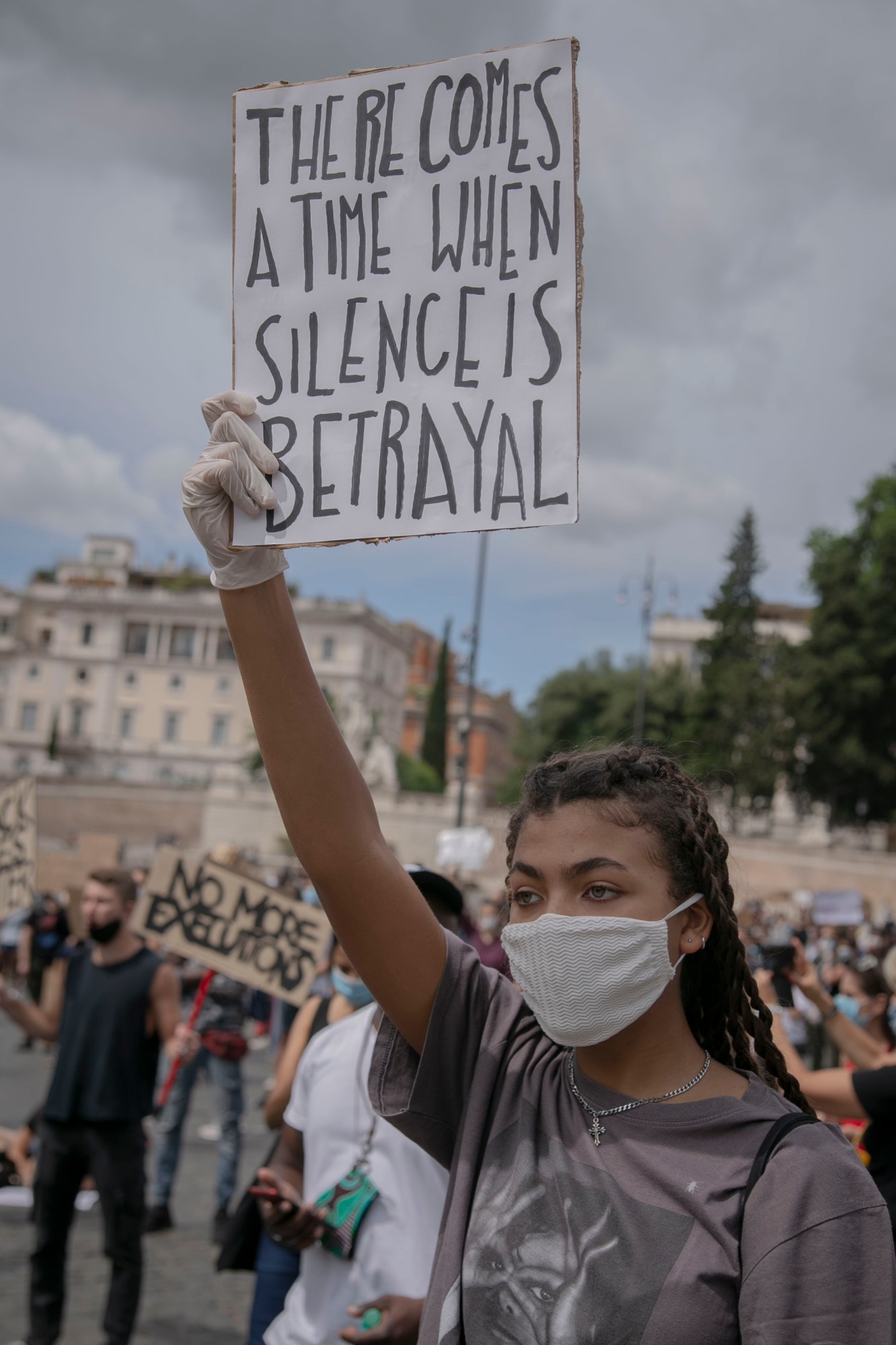
In Italy, engaging in honest conversations about race is wishful thinking. Yet in Milan, on June 7, 2020 a huge crowd gathered in front of the central station showing an unprecedented level of solidarity during the protests, which subsequently happened in cities like Rome and Turin. Stella points out that the fashion industry and its media are at crossroads. “A mental decolonisation is needed,” she continues. “We have to be very grateful for the push that the United States provided [with Floyd’s case]. I went down to the Rome Square and asked people to stop and look us right in the eyes for the very first time. We are asking for Made in Italy not to hide behind excuses and justifications anymore, but to give its own voice and real commitment to serve as a part of the largest civil rights movement in history, with an effort to increase the inclusion of people of colour in their
workforce.”
Together with her co-founders, Stella outlined the BLM Italy’s six-point cultural reform based on the following principles: education, cultural appropriation, database, checks and balances, self-regulation, and insensitive conversation. Through this, the aim is to tear down the most commonly used justifications by Italian fashion companies for the lack of diversity within the Italian workforce. Her intent wasn’t to attack, but to formally request an honest dialogue, which she feels is necessary to create a solution to an issue that has been ignored for far too long. The following brands were present at the "Do Black Lives Matter in Italian Fashion?" (BLMIF) event on Tuesday, September 22, hosted by Camera Nazionale della Moda: Armani, Zegna, Kering, Bottega Veneta, Etro, Gucci, Prada, Valentino, and Salvatore Ferragamo. Three representatives of the brands also spoke at the event: Gucci (Antoine Philipps), Kering (Nicolo Moschino), Ferragamo (Linda Rosellini).
Part of the solution is the promotion of non-white Italian designers. Michelle Ngomo brought five designers forward during Milan Fashion Week, saying she felt “urged” in giving the responsibility to young people of colour in Italy, as their skills are, as she puts it, “pivotal and should be championed”. Her hand-picked group consists of Claudia Gisèle Ntsama, Fabiola Manirakiza, Macodou Fall, Joy Ijeoma Meribe, and Karim Daoudi, who each presented their Spring Summer 2021 collections via the digital showcase.

As tasteful homage to Afro-Black culture has become pervasive around the world (be it Afro-beats, the popularisation of Nollywood in mainstream culture or European designers inspired by tribal references), this next-gen wave of talent pays respect with powerful and sensitive designs. Their lines are vibrant and exciting, and their multicultural influences and knack for innovation is thrilling, adhering to the topics of identity and heritage while doing an excellent job at it. Based in Italy (albeit with a culture that crosses any continent) these labels avoid the predictable clichés associated with African style. Seeking to celebrate their homelands, bright palettes are seen in all their vivid glory, with a take on Black tradition that is particularly beautiful.
Claudia Gisèle Ntsama, originally from Cameroon and founder of the label Gisfab, believes Black Lives Matter Italy has been an integral to recent progress. Founded in 2016, Gisfab is inspired by contemporary art and Japanese references with a modern twist on volumes (think sculpturally-created explosions of ruches) and sustainable hemp textiles. “It’s an important starting point to open a path toward a better social integration,” she says of the platform she is a part of, adding that Italy’s system could thrive from globalisation. “Letting new designers from all over the world come into contact with the Italian companies can make a big difference.”
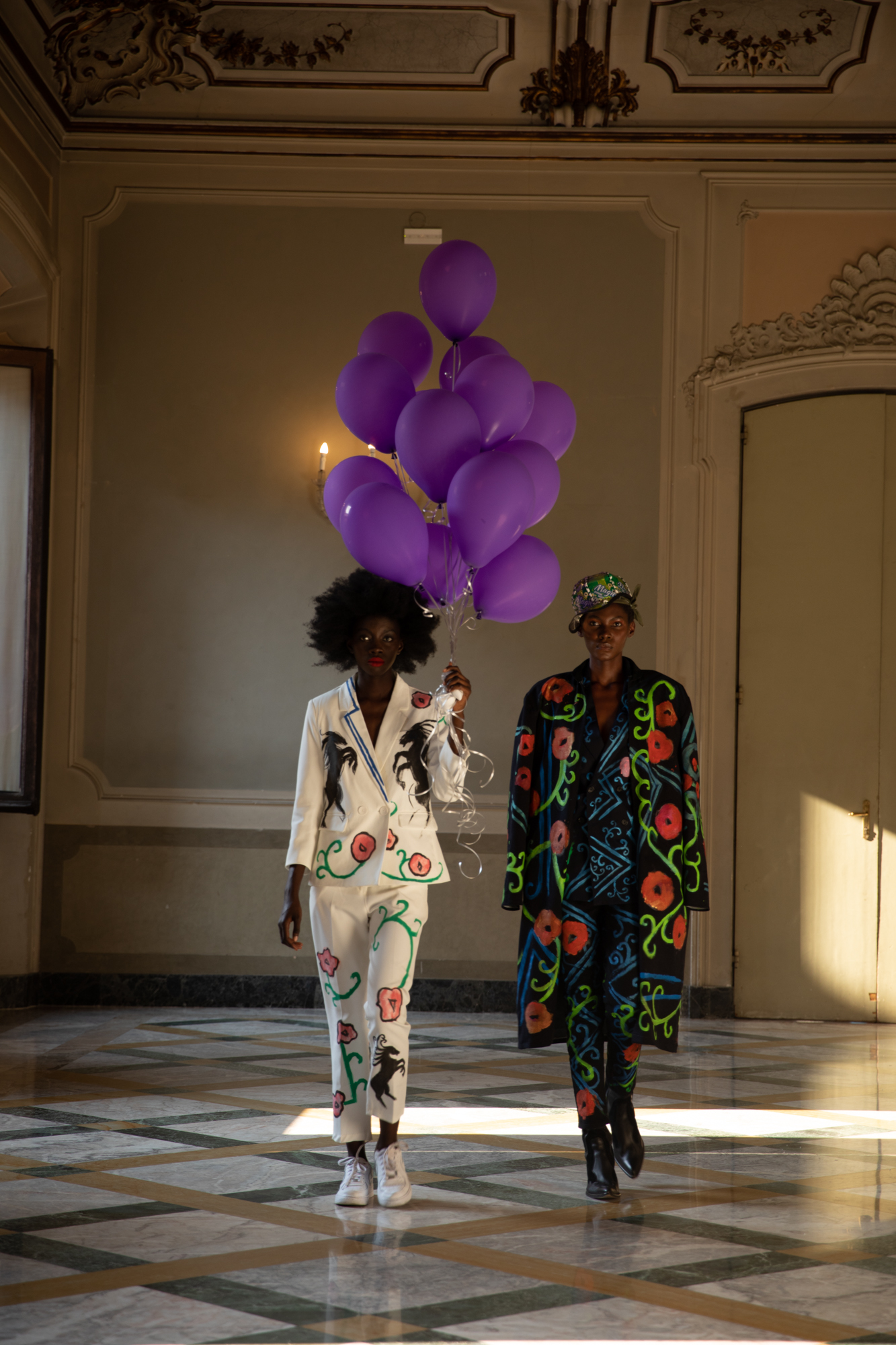
On a similar note, Senegalese artist Macodou Fall, founder of Mokodu (whose debut focuses on the figures of the African Renaissance), concurs that years ago, these conversations were taboo because Italian society tends to deny the racism in Italy and the population tends to act like it only exists in other countries. After a meeting with Michelle in 2017, he presented his “Jardin de L’amour” collection the following year, before officially launching his fashion brand this year. The collection he unveiled at MFW SS21 fuses the world of art, photography and the research he dived into during lockdown.
“It has not been easy,” says Nigerian-born designer Joy Ijeoma Meribe, who fuses prints and textures with her Modaf Designs label. She speaks candidly about the hardship she’s encountered as a Black designer in Italy. “Apart from the issue of limited finance as not just an independent designer, but a Black independent designer, it’s been very difficult convincing the Italian fashion scene that I am just as good.”
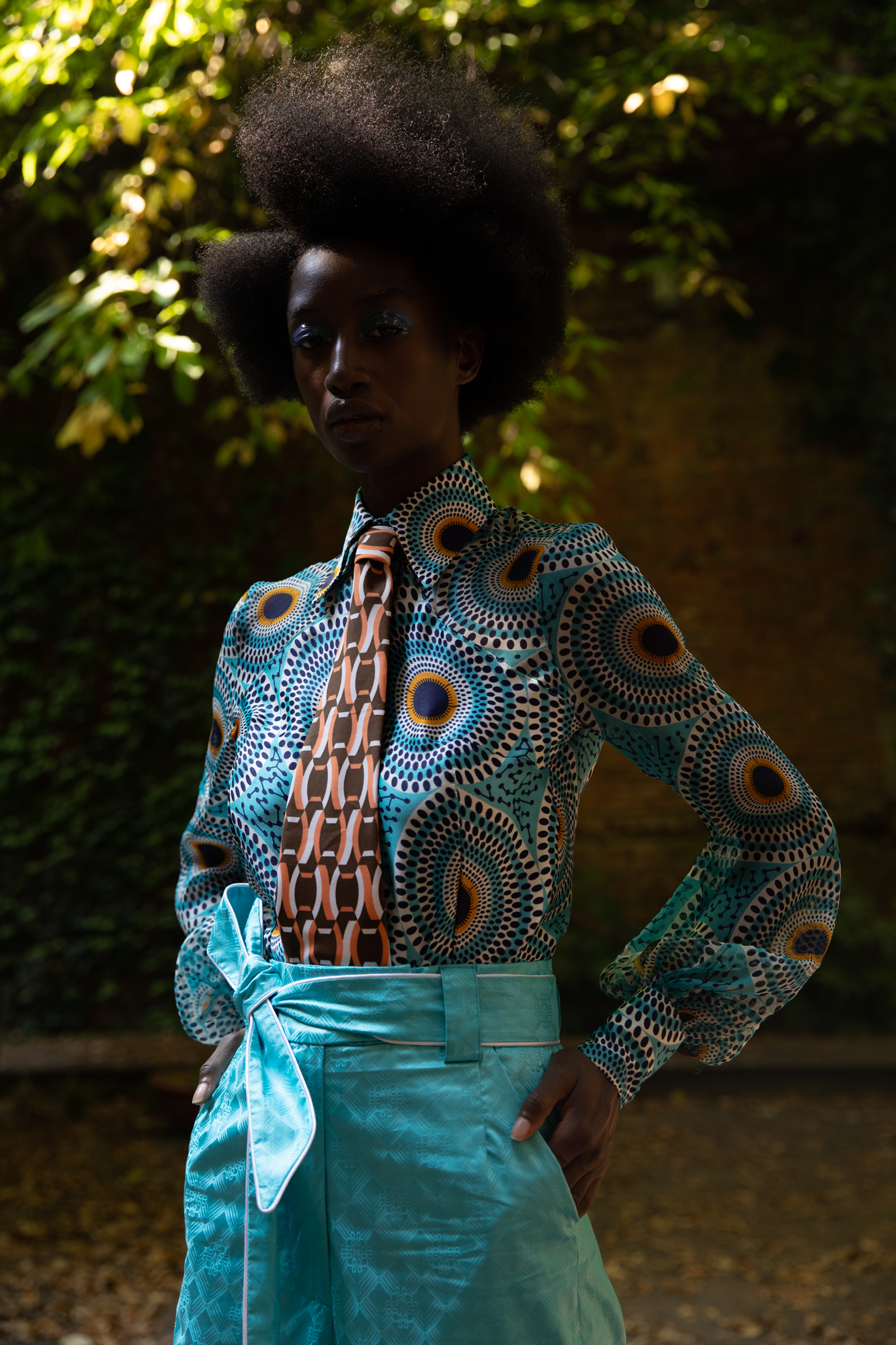
Meanwhile, Burundi-native Fabiola Manikariza, founder of the Made-in-Italy label Frida Kiza, now residing in the Marche region, came to Italy after her parents were killed in Burundi in 1972. Establishing her label in 2016, she prevailed against all the odds and shaped her brand successfully. An Italian aficionado, despite experiencing racism, she claims that she’s “adapted” to tackle the brunt of it. “I have to struggle twice because of my skin colour, but like I said, I’m used to challenges,” she says. “Diversity is an important value, but Italy has to learn how to welcome a wealth of culture in order to incite real change to its system.”
These designers’ strengths lie in their tenacity, prowess and unrelenting determination, which, if the Italian system can recognise moving forward, could breed long-term progress. Thanks to BLM Italy, the country now has an opportunity to acknowledge the Black fashion talent within its midst. It offers a glimmer of hope for a new generation of Italian designers of colour, who are vital in reframing the future of Italy’s fashion legacy.
